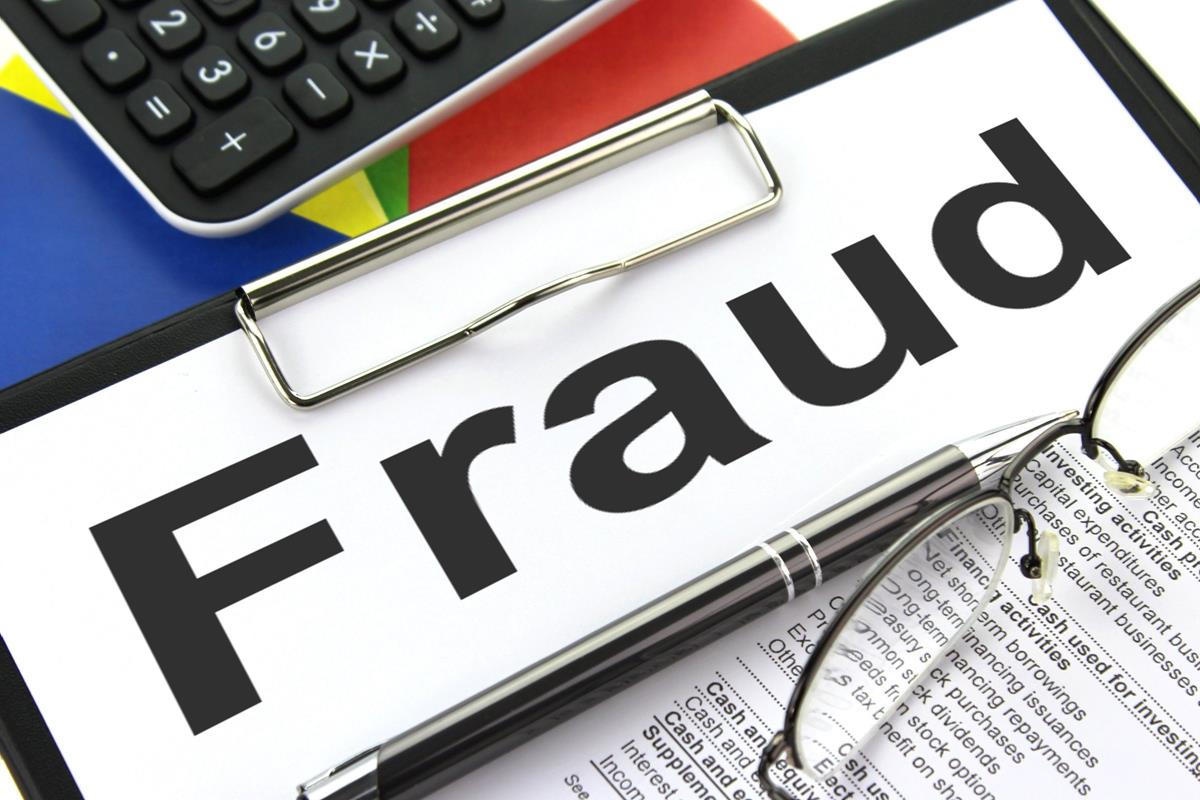Help is on the way for understanding voter fraud in 2020

Sometimes I stumble across an article that so perfectly explains a concept that it would be criminal if I failed to share it. That’s the case with a detailed discussion someone sent me that explains with exquisite clarity that, no, you’re not imagining fraud in the 2020 election, and yes, it was the type of fraud that could easily sway the national election.
Gil Sanders, at the Thomistic Thinker, wrote a post entitled “Skeptical of Voter Fraud in 2020? Here’s Your Evidence.” It is a meticulous piece of work that helps could through the sheer volume of material, both pro and con, about the 2020 election.
Sanders begins by talking about the fact that we Trump supporters can feel that something is wrong. After all (and this is me speaking, not Sanders), you and I both know that, throughout the campaign, there was no whiff of the underdog about Trump. While a doddering Biden hid in his basement, Trump was out there making peace in the Middle East, resurrecting the economy that the Democrats had tried to kill, rising from his Wuhan virus sickbed within days, and barnstorming the country holding rallies that attracted tens of thousands of people.
This man was a winner – and when it came to the votes that were recorded for him, those showed a winner too. Even assuming, as I do, that Democrats deleted or switched millions of Trump votes, Trump still gained 10 million more votes than he did in 2016, and substantially increased his votes from minority voters. Meanwhile, we’re being asked to believe that an incoherent man, mired in corruption, who refused to tell people what his policies would be, not only beat Trump but beat Obama’s total in 2008!
Sanders doesn’t just throw out the usual data which often increases the noise level in our brains and makes it harder to separate wheat from chaff. Instead, he creates an intellectual bedrock for his analysis by defining what he intends to do:
[W]w are making the more limited and the far more modest claim that we tentatively have good reason to suspect that targeted fraud exists in some of the key states, that several powerful figures are behind this, and that this fraud is significant enough to flip the election in Trump’s favor even if that is by a small margin.
Sanders also carefully distinguishes radical conspiracies (faked moon landings, lizard people, Big Foot) from normal conspiracies. The latter simply means bad people doing bad things. This category can run the gamut from Nazis conspiring to implement the Holocaust to your neighbor stealing your paper every morning. Sanders warns against letting people bully you about this distinction:
Don’t let anyone get away with conflating targeted fraud with radical conspiracies. If they do, make this point: These same people accepted baseless conspiracy theories like the Russian Collusion hoax despite the fact that Leftists journalists like Matt Taibbi and Greenwald showed it was baseless. They also immediately rejected the Hunter-Biden emails as Russian disinformation without any evidence whatsoever. They’re not in any position to ridicule us.
And with that introduction, Sanders is off, providing well-organized information that creates a framework for credibly asserting that we witnessed enough fraud in 2020 to change the outcome of the election.
Sanders starts by providing evidence that election fraud has happened before (so it can happen again). To prove that the Democrats have the means to commit targeted election fraud, he lists everything from tech experts easily hacking machines to Democrats fretting about this type of fraud when they thought Trump might do it, to data about dead people on voter rolls. As for those hackers,
All it takes is one hacker to affect this entire election. Just one. It’s also clear that politicians have the arsenal (dead people, ghost voters, illegal voters) and questionable voting systems to do damage. I am not saying that the full arsenal is being used – especially since some errors are gradually being corrected – but it leaves open the real possibility of targeted fraud.
Motive is accounted for by the fact that Democrats have convinced themselves that Trump is the ultimate evil – and again, Sanders provides ample evidence to support this contention. Having convinced themselves of this faked reality, Democrats had every opportunity to act on it.
Sanders moves on to the fact that the indicia of election fraud apply in each of the contested states. There are also random factoids, all of which suggest to anyone with half a brain that the Democrats were interfering in the election. He even explains why the fact that Democrats are struggling to win the Senate, rather than making a clean sweep of the top of the ticket, does not negate fraud charges.
If you know that the question of election fraud is going to come up at your Thanksgiving dinner table, I strongly urge you to check out Gil Sanders’s article so that you can arm yourself adequately for the conversation. You won’t only have facts at your fingertips, you’ll also have a logical framework from which to argue or educate.
Sometimes I stumble across an article that so perfectly explains a concept that it would be criminal if I failed to share it. That’s the case with a detailed discussion someone sent me that explains with exquisite clarity that, no, you’re not imagining fraud in the 2020 election, and yes, it was the type of fraud that could easily sway the national election.
Gil Sanders, at the Thomistic Thinker, wrote a post entitled “Skeptical of Voter Fraud in 2020? Here’s Your Evidence.” It is a meticulous piece of work that helps could through the sheer volume of material, both pro and con, about the 2020 election.
Sanders begins by talking about the fact that we Trump supporters can feel that something is wrong. After all (and this is me speaking, not Sanders), you and I both know that, throughout the campaign, there was no whiff of the underdog about Trump. While a doddering Biden hid in his basement, Trump was out there making peace in the Middle East, resurrecting the economy that the Democrats had tried to kill, rising from his Wuhan virus sickbed within days, and barnstorming the country holding rallies that attracted tens of thousands of people.
This man was a winner – and when it came to the votes that were recorded for him, those showed a winner too. Even assuming, as I do, that Democrats deleted or switched millions of Trump votes, Trump still gained 10 million more votes than he did in 2016, and substantially increased his votes from minority voters. Meanwhile, we’re being asked to believe that an incoherent man, mired in corruption, who refused to tell people what his policies would be, not only beat Trump but beat Obama’s total in 2008!
Sanders doesn’t just throw out the usual data which often increases the noise level in our brains and makes it harder to separate wheat from chaff. Instead, he creates an intellectual bedrock for his analysis by defining what he intends to do:
[W]w are making the more limited and the far more modest claim that we tentatively have good reason to suspect that targeted fraud exists in some of the key states, that several powerful figures are behind this, and that this fraud is significant enough to flip the election in Trump’s favor even if that is by a small margin.
Sanders also carefully distinguishes radical conspiracies (faked moon landings, lizard people, Big Foot) from normal conspiracies. The latter simply means bad people doing bad things. This category can run the gamut from Nazis conspiring to implement the Holocaust to your neighbor stealing your paper every morning. Sanders warns against letting people bully you about this distinction:
Don’t let anyone get away with conflating targeted fraud with radical conspiracies. If they do, make this point: These same people accepted baseless conspiracy theories like the Russian Collusion hoax despite the fact that Leftists journalists like Matt Taibbi and Greenwald showed it was baseless. They also immediately rejected the Hunter-Biden emails as Russian disinformation without any evidence whatsoever. They’re not in any position to ridicule us.
And with that introduction, Sanders is off, providing well-organized information that creates a framework for credibly asserting that we witnessed enough fraud in 2020 to change the outcome of the election.
Sanders starts by providing evidence that election fraud has happened before (so it can happen again). To prove that the Democrats have the means to commit targeted election fraud, he lists everything from tech experts easily hacking machines to Democrats fretting about this type of fraud when they thought Trump might do it, to data about dead people on voter rolls. As for those hackers,
All it takes is one hacker to affect this entire election. Just one. It’s also clear that politicians have the arsenal (dead people, ghost voters, illegal voters) and questionable voting systems to do damage. I am not saying that the full arsenal is being used – especially since some errors are gradually being corrected – but it leaves open the real possibility of targeted fraud.
Motive is accounted for by the fact that Democrats have convinced themselves that Trump is the ultimate evil – and again, Sanders provides ample evidence to support this contention. Having convinced themselves of this faked reality, Democrats had every opportunity to act on it.
Sanders moves on to the fact that the indicia of election fraud apply in each of the contested states. There are also random factoids, all of which suggest to anyone with half a brain that the Democrats were interfering in the election. He even explains why the fact that Democrats are struggling to win the Senate, rather than making a clean sweep of the top of the ticket, does not negate fraud charges.
If you know that the question of election fraud is going to come up at your Thanksgiving dinner table, I strongly urge you to check out Gil Sanders’s article so that you can arm yourself adequately for the conversation. You won’t only have facts at your fingertips, you’ll also have a logical framework from which to argue or educate.
*** This article has been archived for your research. The original version from American Thinker can be found here ***


